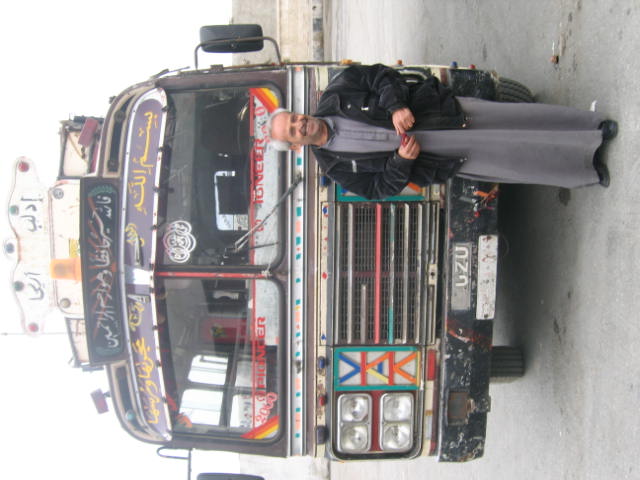

Fotos: 1. "Sex" (real name Mehmet), a friend, and Mustafa. 2. Breakfast at Mesut's flat.
As usual, my hosts in Adan, Southern Turkey were the brothers Mustafa and Mesut, from Hospitality Club. When the bus taking me from Kilisi reached Adana it was past midnight, so I decided to call them the following morning and instead put up my tent. It would have been an easy task hadn’t been for the fact that the steep way out of the motorway here and there only met a 2 meters high fence. Felt like in a zoo. Eventually I found a gap and camped on the other side. Next morning Mesut picked me up from the carpet shop where I had been granted breakfast and phone. Already at his house, a royal style breakfast awaited, as usual!
In the two days I spent in Adana, none of the classics were missing. The BBQ in the inhospitable remote place, for example. The brothers seem to enjoy roasting a chicken or a row of fish in some remote location, behind some moutain or lake. The garden is not enough! The meal was quiet, even if some guys turned up ready to test a Magnum rifle recently bought in the black market fo 80 dollars, and started to shoot the birds over the lake. The other starring feature of Mesut and Mustafa is their drunken friends. The one I met this time was nicknamed “sex” (Mustafa says that’s because he is very good)/ After the third glass of raki Sex starts speaking fluid English, much to my surprise. Talking about surprises, another one was the news that Mustafa and his wife are waiting a new son! I finally departed to Anakara to apply for my Iranian. Pakistani and Afghan visas.
As usual, my hosts in Adan, Southern Turkey were the brothers Mustafa and Mesut, from Hospitality Club. When the bus taking me from Kilisi reached Adana it was past midnight, so I decided to call them the following morning and instead put up my tent. It would have been an easy task hadn’t been for the fact that the steep way out of the motorway here and there only met a 2 meters high fence. Felt like in a zoo. Eventually I found a gap and camped on the other side. Next morning Mesut picked me up from the carpet shop where I had been granted breakfast and phone. Already at his house, a royal style breakfast awaited, as usual!
In the two days I spent in Adana, none of the classics were missing. The BBQ in the inhospitable remote place, for example. The brothers seem to enjoy roasting a chicken or a row of fish in some remote location, behind some moutain or lake. The garden is not enough! The meal was quiet, even if some guys turned up ready to test a Magnum rifle recently bought in the black market fo 80 dollars, and started to shoot the birds over the lake. The other starring feature of Mesut and Mustafa is their drunken friends. The one I met this time was nicknamed “sex” (Mustafa says that’s because he is very good)/ After the third glass of raki Sex starts speaking fluid English, much to my surprise. Talking about surprises, another one was the news that Mustafa and his wife are waiting a new son! I finally departed to Anakara to apply for my Iranian. Pakistani and Afghan visas.





























